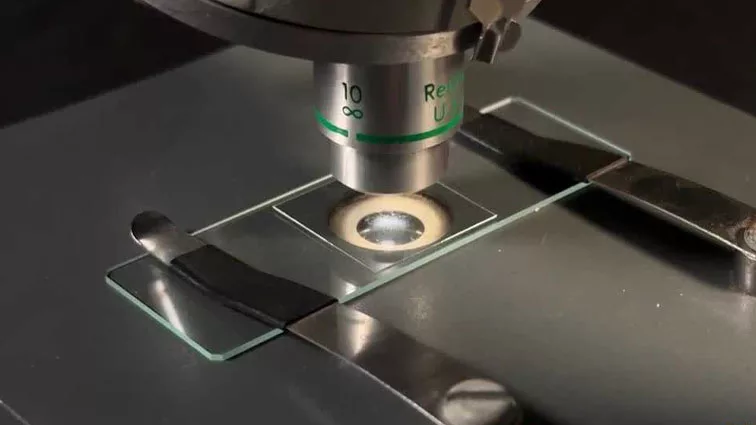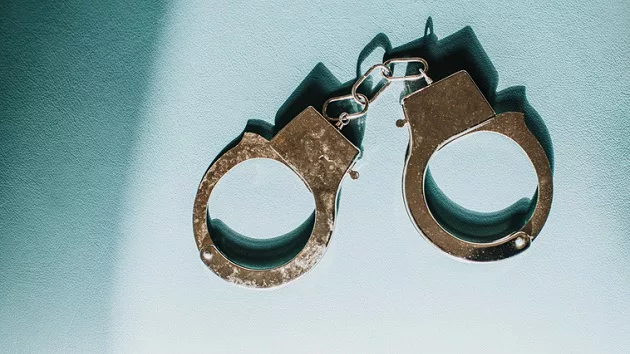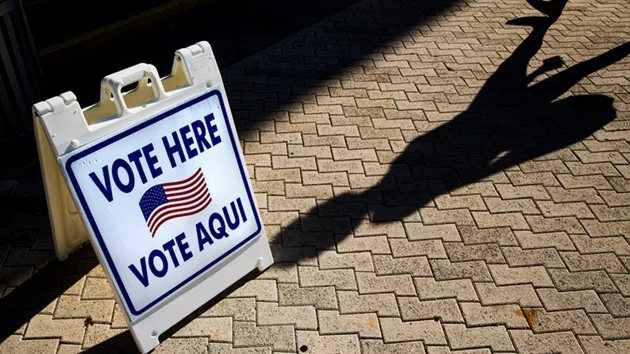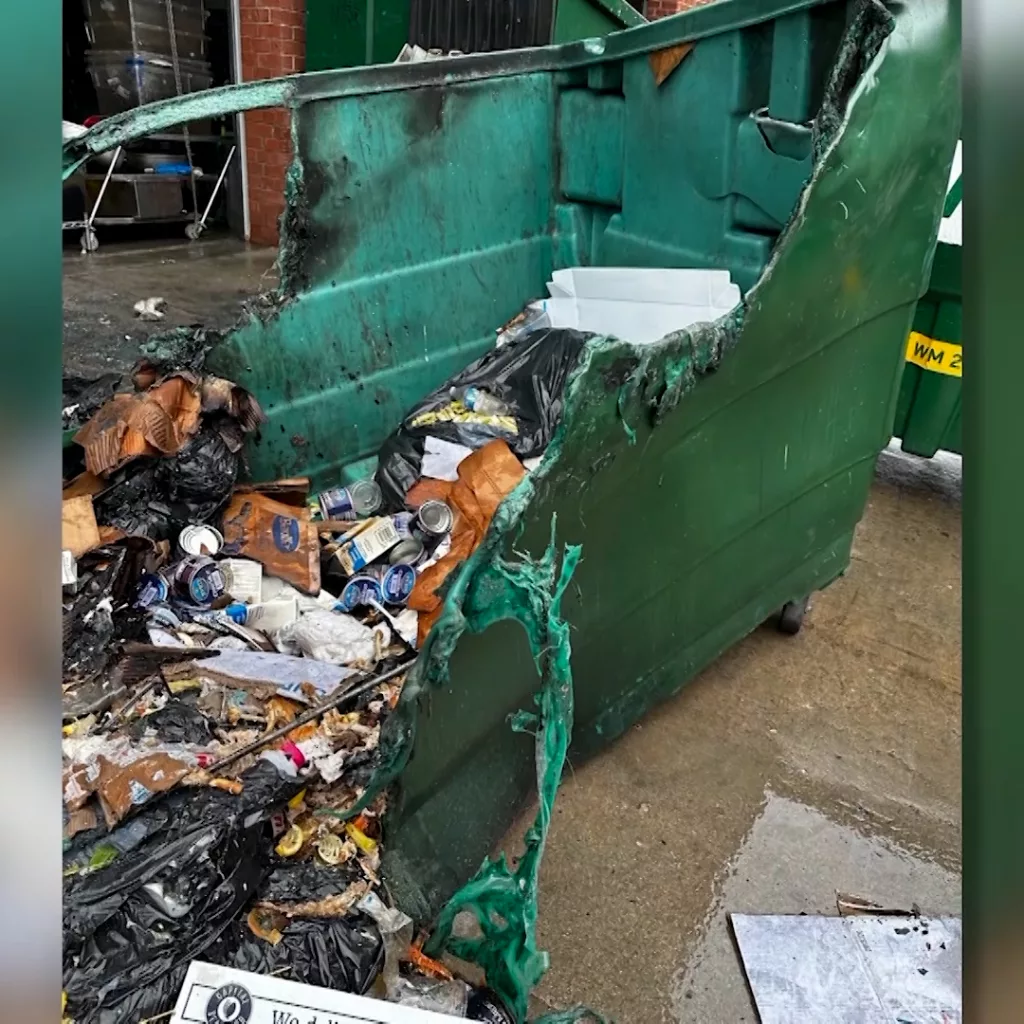An effort underway in Baltimore County aims to find survivors of sex assaults from more than four decades ago based on the foresight of an emergency room doctor in the 1970s.
Baltimore County police are working to process evidence collected from victims who sought care at the Greater Baltimore Medical Center over a 20-year span starting in 1977.
Justice lives on in survivors:
The cases all have one man in common: Dr. Rudiger Breitenecker. On top of being an emergency room doctor at the time, Breitenecker was a forensic pathologist who used his training to preserve evidence. Even after his death, his belief in justice lives on in survivors today.
“My dad’s my hero,” Rudiger Breitenecker Jr. told 11 News. “He was a kind human being, somebody who looked out for other people.”
The Austrian-born doctor was a pioneer who, in some respects, paved a new path for justice for sex assault survivors in Maryland.
“People that did bad things 30 years ago are now finding justice,” Breitenecker Jr. told 11 News. “The way he put it was, ‘You try your best to get the truth.'”
The 1970s was a vastly different culture for American women who were just being allowed to open bank accounts on their own. Congress passed Title IX, which prohibited discrimination for women in education, while the workplace was still discriminatory. And when it came to cases of sexual assault, the ability to investigate cases was limited.
Slides preserved amid advancement in DNA technology:
Laura Clary, who runs GBMC’s Sexual Assault Forensic Examination (SAFE) program, gave an exclusive look to 11 News Investigates at the work they do now to help survivors heal and determine next steps. The program was inspired by Breitenecker after he started collecting evidence that could one day be tested for DNA.
“So, back in the 70s and 80s, DNA wasn’t even a thing,” Clary told 11 News. “(Breitenecker) didn’t know what was going to be able to happen in the future, but (it’s) the fact that he said, ‘These patients are coming forward, I feel like I need to do something to maintain this evidence that I’m collecting. Maybe it’ll be useful in the future.'”
“People that did bad things 30 years ago are now finding justice.”
Starting in the 1970s, Breitenecker saw hundreds of victims of sexual assault and rape at GBMC’s emergency department, using his forensic training to perform exams and preserve evidence on microscope slides.
As technology advanced, the evidence on some of the slides was used in dozens of cases to secure convictions, including the recent arrest of suspected serial rapist James Shipe, who’s accused of targeting five women in Cockeysville between 1978 and 1986, all within a mile of each other.
Alphonso Hill was convicted in seven sexual assault cases, all connected to evidence from the Breitenecker slides.
“These are inherently old, older cases, often cold cases,” said Baltimore County police Capt. Brian Edwards, the commander of the department’s Special Victims Unit.
Video below:
“We are sorry that they were left without knowing what happened to their evidence for so long.”
The doctor also testified in several trials as DNA testing became more common.
“I think what made Dr. Breitenecker such a compelling witness was, No. 1, his ability to take complex issues and make them understandable to the jurors,” Baltimore County State’s Attorney Scott Shellenberger told 11 News.
Breitenecker’s own son did not know the contribution his dad was making at the time. He described his father as a humble man who survived horrors of war as a child in Austria.
“During the war, they witnessed rape, and I think, witnessed (it) in the family,” Breitenecker Jr. told 11 News.
Survivors urged to come forward:
The mission is still in motion as police and prosecutors work to find justice for survivors.
“Our goal is to hold the perpetrators who commit these crimes accountable,” Baltimore County police Chief Robert McCullough told 11 News.
Not all of the doctor’s slides were processed. Thanks to new funding in the form of $1.5 million from the state and a $500,000 grant from the Hackerman Foundation, the remaining slides — fewer than 1,000 — are being expedited for analysis by the end of 2024. So, authorities are now asking for sexual assault survivors who were treated at GBMC between 1977 and 1997 to come forward.
Survivors are asked to call the Maryland Coalition Against Sexual Assault at 833-364-0046 or email notification@mcasa.org to learn more about their evidence.
“One of the first things that they can expect is an apology from our advocates. We are sorry that they were left without knowing what happened to their evidence for so long,” said Laura Jessick, with the Maryland Coalition Against Sexual Assault. “Then, we discuss the project and how or if they want to be contacted moving forward.”
It’s an approach that allows survivors to decide their involvement.
“Some victims want to move quick, they want to get through the process, they want to tell their story, and others need some time,” Edwards told 11 News.
As police look to investigate the cold cases, the doctor’s son reflects on his father’s legacy, calling him a regular guy who cared deeply about others.
“(He was) someone who (had) humility in his professional life and then has an impact posthumously. It’s unbelievable,” Breitenecker Jr. told 11 News.
Sexual assault resources in Baltimore County:
Baltimore County Police Department Special Victims Unit: Call 410-887-2223
– The GBMC SAFE-DV Program provides medical services and victim resources, as well as a listing of sexual assault services that are available to victims and survivors of sexual assault, child abuse and domestic violence
– TurnAround Inc. — Baltimore County’s certified rape crisis center
– Maryland Coalition Against Sexual Assault — survivors seeking help
– Victim notification “opt-in” portal: 833-364-0046








